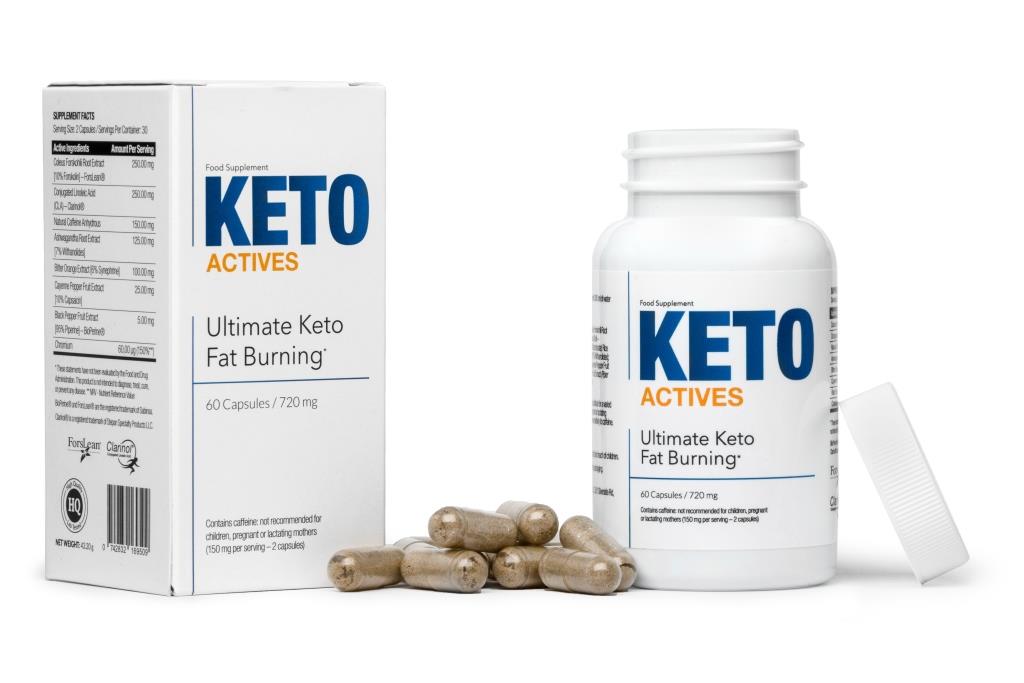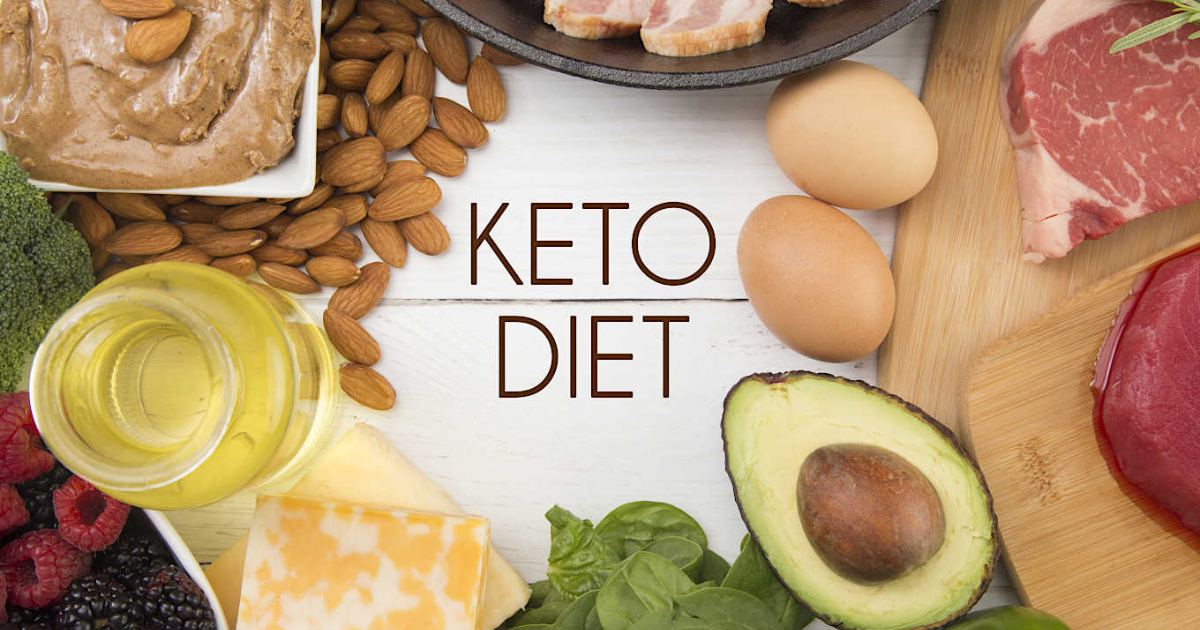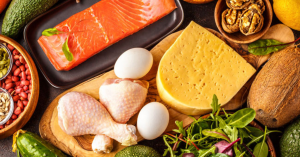This site contains product affiliate links. We may receive a commission if you make a purchase after clicking on one of these links.
What Is A Ketogenic Diet?
The ketogenic diet is an extremely low-carb, high-fat diet that is comparable to Atkins and low-carb diets in many ways. It requires drastically reducing carbohydrate consumption and replacing it with fat.
This carbohydrate reduction puts your body into a metabolic condition known as ketosis. This causes your body to become extremely effective at burning fat for energy. It also converts fat in the liver into ketones, which can provide energy to the brain.
Blood sugar and insulin levels can be drastically reduced by following this. This gives a variety of health benefits in addition to increased ketones.
Benefits Of The Ketogenic Diet.
- Weight Loss: it is very effective for weight loss because it eliminates hunger and cravings. The high-fat and low-carb diets encourage your body to burn fat for energy instead of relying on carbohydrates.
- Increased Energy: The keto diet helps your body to become more efficient at burning fat for energy, leading to increased energy levels.
- Improved Cognitive Function: The keto diet has been shown to improve cognitive function, especially for those with Alzheimer’s or other forms of dementia.
- Lower Blood Pressure: The keto diet has been shown to improve blood pressure levels and reduce the risk of stroke and heart attack.
- Improved Cholesterol Profile: The keto diet has been shown to improve cholesterol levels, leading to improved heart health.
- Reduced Inflammation: The keto diet has been shown to reduce inflammation in the body, which can reduce the risk of certain diseases.
- Improved Digestion: The keto diet has been shown to improve digestion, which can lead to increased absorption of vitamins and minerals.
- Reduced Risk of Cancer: The ketogenic diet has been shown to reduce the risk of cancer in several ways. First, the diet limits the amount of glucose available for cancer cells to use as fuel, which reduces their growth and proliferation.

Types of Ketogenic Diets
- Standard Ketogenic Diet (SKD): A very low-carb, moderate-protein and high-fat food that typically contains 75% fat, 20% protein, and only 5% carbs.
- Cyclical Ketogenic Diet (CKD): A variant of the SKD that includes planned periods of higher carb intake, usually for a few days at a time.
- Targeted Ketogenic Diet (TKD): A variant of the SKD that allows for the consumption of carbs around workouts.
- High-Protein Ketogenic Diet: A variant of the SKD that involves a higher ratio of protein (up to 35%) and a lower ratio of fat (down to 65%).
- Restricted Ketogenic Diet: A very low-calorie food that is used for rapid weight loss. It typically consists of less than 800 calories per day and a very low carb intake.
How To Get Started
- Educate yourself: Learn as much as you can about the ketogenic diet and how it works. Read books, browse websites, and talk to experienced keto dieters to learn the basics and decide if it’s right for you.
- Get a plan: Create a meal plan that works for your lifestyle, health goals, and food preferences. Keep in mind that the ketogenic diet requires you to consume fewer carbohydrates and more fat than you normally would.
- Stock up: Fill your pantry with high-fat ketogenic foods like nuts, seeds, fatty fish, eggs, and low-carb vegetables.
- Track your macros: Use an app or website to track your daily food intake and adjust your macros to meet your goals.
- Get creative: Try new recipes to keep your meals interesting and exciting. this isn’t about deprivation – there are plenty of delicious and nutritious dishes to enjoy.
- Support your body: Make sure you’re getting enough electrolytes, drinking enough water, and supplementing with vitamins and minerals to support your body’s transition to a ketogenic diet.
- Stay the course: Don’t give up too soon! It can take time for the body to adjust to the ketogenic diet, so be patient and stay consistent in your approach.
Potential Risks Of The Ketogenic Diet
- Dehydration: it can cause dehydration due to its high-fat, low-carbohydrate content. To prevent dehydration, it’s critical to consume lots of water throughout the day.
- Constipation: The ketogenic diet can cause constipation due to its high-fat, low-carbohydrate content. It’s important to add fiber-rich foods to your diet and to drink plenty of fluids to avoid constipation.
- Vitamin and Mineral Deficiencies: The ketogenic diet can cause deficiencies in vitamins and minerals due to its high-fat, low-carbohydrate content. It’s important to supplement with a multivitamin and other vitamins and minerals to prevent deficiencies.
- Kidney Stones: This can cause an increase in the risk of kidney stones due to its high-fat, low-carbohydrate content. It’s important to drink plenty of fluids to help flush out any stones that may form.
- Fatigue: The ketogenic diet can cause fatigue due to its high-fat, low-carbohydrate content. It’s important to get enough rest and to include healthy carbohydrates in your diet to help prevent fatigue.
Food Options On The Ketogenic Diet
- Make sure to get plenty of healthy fats from sources like olive oil, avocados, nuts, seeds, and fatty fish.
- Get your protein from lean sources like chicken, turkey, eggs, and low-fat dairy.
- Incorporate plenty of leafy greens and low-carb vegetables into your meals.
- Use low-carb sweeteners like stevia and erythritol in place of sugar.
- Enjoy keto-friendly snacks like pork rinds, dark chocolate, and hard-boiled eggs.
- Use keto-friendly flour alternatives like almond flour and coconut flour in baking.
- Get creative with keto-friendly meals like zucchini noodles, cauliflower rice, and egg-based dishes.
- Incorporate spices and herbs to add flavour to dishes without adding carbs.
- Try making keto-friendly smoothies with avocado, nut butter, and a low-carb sweetener.
- Experiment with low-carb versions of classic recipes like tacos, pizza, and burgers.
Risks Of Following A Ketogenic Diet
- Nutrient deficiencies: It can be nutrient-deficient due to its high fat and low carbohydrate content. This can lead to deficiencies in essential vitamins and minerals such as vitamin D, calcium, and magnesium.
- Constipation: The low-fibre content of the ketogenic diet can lead to constipation.
- Kidney stones: Some research suggests that a ketogenic diet can increase the risk of kidney stones.
- Gallbladder issues: Following this, it can lead to an increased risk of gallstones.
- Low blood sugar: A very low-carbohydrate diet can cause hypoglycemia (low blood sugar).
- Heart disease: The high-fat content of the ketogenic diet can increase cholesterol levels, which may increase the risk of heart disease.
Conclusion:
The ketogenic diet is a well-liked and successful method for shedding pounds and enhancing general wellness. Numerous illnesses, such as weight reduction, diabetes, and cognitive function, might benefit from it.
However, it is important to understand the potential risks associated with the diet, as it can cause nutrient deficiencies and unpleasant side effects. With proper education and planning, ketogenic diet is an amazing weight loss journey.




